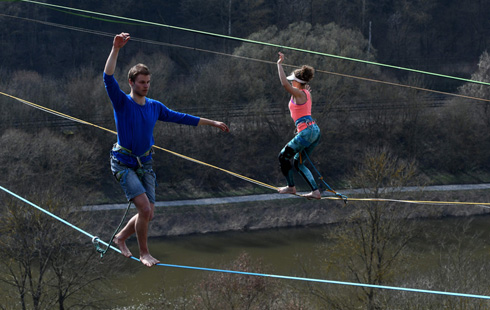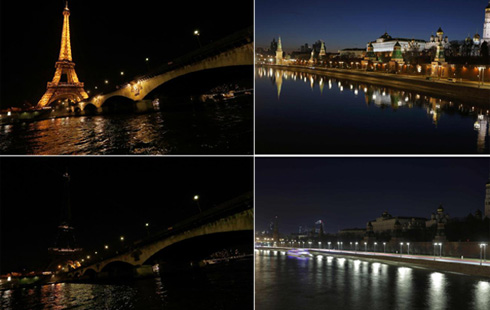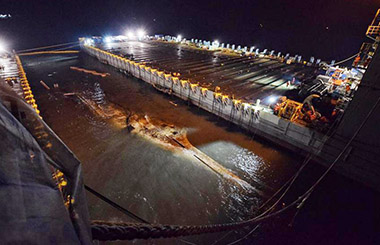No more survivors likely in collapse
Rescue workers in Bangladesh gave up hopes of finding any more survivors in the remains of a building that collapsed five days ago, and began using heavy machinery on Monday to dislodge the rubble and look for bodies - mostly of workers in garment factories there.
In renewed anger against conditions in garment factories - a mainstay of Bangladesh's economy - hundreds of workers poured into the streets in the Dhaka suburb of Ashulia and set fire to an ambulance on Monday, the Independent TV, a private network, reported. They also tried to set fire to a factory, it said. Authorities shut down all garment factories in Ashulia and Gazipur industrial suburbs, including one that had reportedly developed cracks and was evacuated earlier.
At least 381 people were killed when the illegally constructed, eight-story Rana Plaza collapsed in a heap on Wednesday morning along with thousands of workers in the five garment factories in the building. About 2,500 survivors have been accounted for. The building owner, Mohammed Sohel Rana, was arrested Sunday in the western border town of Benapole while he was trying to flee to India.
The collapse was the deadliest disaster to hit the garment industry in Bangladesh that is worth $20 billion annually and supplies global retailers.
Volunteers, army personnel and firemen have worked since Wednesday, mostly using hands and light equipment to pull out survivors. Around midnight on Sunday, authorities deployed hydraulic cranes and heavy cutting machines to break up the massive slabs of concrete into manageable segments that could be lifted away.
"We are proceeding cautiously. If there is still a soul alive, we will try to rescue that person," said army spokesman Shahinul Islam.
"There is little hope of finding anyone alive. Our men went inside and saw some dead bodies in the ground floor. But no one was seen alive," said Brigadier General Ali Ahmed Khan, the chief of the fire brigade at the scene.
Gone are the civilian volunteers who had swarmed the site since the disaster. Only army soldiers in green camouflage and hard hats were visible, watching heavy machinery digging into thick concrete. Gone also were the waiting ambulances that over the past five days had rushed the rescued to hospitals.

















